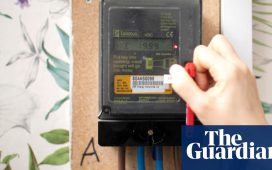
The fertiliser subsidy for 2024-25 is budgeted at ₹1.64 lakh crore, 13.18% lower than the revised estimate of ₹1.88 lakh crore for 2023-24.
The Centre has released ₹17,814.80 crore for nutrient-based subsidy and ₹43,355.09 crore for urea subsidy until September.
“We are in a comfortable situation for the current sowing period, but fertiliser costs may rise if the crisis continues,” an official told ET. “We are closely monitoring the situation and the allocation can be raised if required.”
The chemical and fertiliser ministry also expects better demand in the rabi season and could seek additional funds in the budget discussions with the finance ministry.
The Middle East is a key supplier of non-urea fertiliser for India, with Jordan and Israel accounting for over 50% of the country’s potash imports and 50% of di-ammonium phosphate (DAP) imports.Fertiliser prices, which had softened and stabilised from their peak in March 2023, have begun inching up from July 2024. DAP prices have risen 24%, ammonia prices have increased 15% and sulphur has gone up 35% compared to June 2024 price.Urea prices, which were constant, have also started firming up. October contracts have seen a 10-12% rise.
India imported 7 million tonnes of urea and 10.65 million tonnes of P&K fertilisers in 2023-24.
Officials said that more than the raw material cost, the Israel-Hamas war and tensions in the Middle East region have led to shipment bottlenecks in the Red Sea area, sparking fears of renewed price spikes in potash and phosphorus.
“The revised estimates for fertiliser subsidy may be higher, although it will still be below last year’s levels,” the official said.
In FY24, the Centre managed to reduce fertiliser subsidy expenditure by 23% compared to the previous fiscal year, with total spending amounting to ₹1.95 lakh crore, down from ₹2.54 lakh crore. This exceeded revised estimates by ₹6,500 crore, mainly due to high import costs for nutrient-based subsidies. Of this, ₹1.30 lakh crore was spent on urea subsidies and ₹65,200 crore on phosphorus and potassium subsidies.










